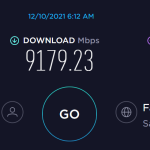Pros and Cons of Hosted VoIP Phone Systems For Small Businesses
As the corporate world continues the shift to a digital landscape and remote work gains steam, perfecting your lines of communication is more important than ever. And as a small business owner, you want to find a reliable, cost-effective, and efficient solution to stay competitive. That’s where hosted VoIP (Voice over Internet Protocol) phone systems come into play.
We know that hosted VoIP systems aren’t the latest and greatest technology to enter the market. But it’s a tried and true technology that offers many benefits, such as cost savings, scalability, and flexibility, which can help improve your communication and productivity tenfold.
However, like any technology, hosted VoIP phone systems also have some drawbacks to consider before deciding to switch over. In this article, we’ll discuss the pros and cons of hosted VoIP phone systems for small businesses to help you make the best decision for your communication needs. Are you ready to learn more? Let’s dive in.
What is a hosted VoIP phone system?
Hosted voice-over-internet protocol, or “hosted VoIP” for short, is a communication technology system powered by the internet. Consider it an alternative to traditional communication technology that relies on landlines — remember those? Hosted VoIP systems use the internet to transmit voice calls, messages, and other multimedia communications. What’s nice about this technology is that most VoIP providers allow you to build the package that makes the most sense for your team’s communication needs.
Who needs a hosted VoIP phone system?
Hosted VoIP phone systems can be useful for any business looking to optimize its internal and external communications. Since this type of communication system is scalable, it’s suitable for businesses of any size. A hosted VoIP phone system can provide a cost-effective and feature-rich solution if your business relies heavily on communication and you might need to hire freelance VoIP engineers to make sure everything is set up correctly.
Some examples of businesses that can benefit from a hosted VoIP phone system:
Small businesses: Hosted VoIP phone systems are an excellent choice for small businesses that want to keep their communication costs low while maintaining professional communication channels.
Remote teams: With a hosted VoIP phone system, remote teams can stay connected and communicate from any location as long as they have an internet connection.
Customer service businesses: Hosted VoIP phone systems are a great fit for businesses that have high call volumes, such as call centers, customer service teams, and support departments.
Growing businesses: Hosted VoIP phone systems are scalable and can grow with your business. As your business expands, you can easily add new phone lines, features, and functionalities without investing in additional hardware or software.
Businesses with multiple locations: Hosted VoIP phone systems can seamlessly connect multiple offices or locations, making it easier for employees to communicate and collaborate.
From Goldman Sachs to your local marketing agency, a hosted VoIP phone system can help businesses of all sizes and industries stay connected and competitive in today’s fast-paced business world.
Pros of hosted VoIP phone systems
Hosted VoIP systems offer many benefits for businesses that want to improve communication. These range from enhanced security to optimized user management.
Let’s take a closer look at some of the pros of hosted VoIP phone systems.
1. Enhanced security
One of the most significant benefits of hosted VoIP phone systems is that they are more secure than other communication systems. This added security is extremely valuable for businesses since it enables them to better protect sensitive data that may be communicated during calls.
2. Cost effective
Hosted VoIP phone systems are typically much more affordable than traditional communication systems for a few reasons. Pricing plans for VoIP communication systems are customizable to meet your company’s needs, so you don’t have to worry about paying for extra lines or features you won’t use. And since hosted VoIP systems leverage the internet and the cloud to function, they require less hardware, making them much more cost-effective.
Another way that hosted VoIP systems save money is that they don’t require the support of an in-house or outsourced IT team. Most hosted VoIP systems come with customer support, so you don’t have to pay for in-house support like traditional communication systems.
3. Real-time communication data
Businesses that use hosted VoIP phone systems can also benefit from the ability to access real-time data and analytics about their communications. Collecting this data is possible since communication is managed with a centralized, internet-based system.
And the best part? Your business can run ad hoc queries on this dataset to gain deeper insights into your operations and ensure you’re running at optimal efficiency. Data is your best friend in the business. So use it to your advantage and power your informed decision-making tactics.
4. Optimizes communication
Hosted VoIP phone systems offer a range of communication features that can optimize communication within your business. For example, features like call forwarding, call routing, voicemail-to-email, and instant messaging can streamline communication channels and improve employee collaboration.
And not to mention, hosted VoIP phone systems can also integrate with other communication tools like video conferencing, chatbots, and project management software, providing a unified communication platform that can boost productivity and efficiency. With these tools at your disposal, you can optimize your communication and ensure that your business runs smoothly and efficiently.
5. Optimized user management
With the constant inflow and outflow of employees, managing communication needs can be a headache. But with VoIP phone systems, managing users is a breeze. Administrators can add or remove phone lines, set up call routing rules, manage voicemail, and configure other system settings through a web-based portal. This simple process allows you to quickly and easily make changes as your business grows or your communication needs change.
An exemplary implementation of hosted VoIP Phone systems will also implement protocols like System for Cross-domain Identity Management (SCIM), allowing the optimization of user management across platforms so the entire system is integrated with other parts of your organization. Talk about a win-win.
6. Scalable communication solution
Hosted VoIP phone systems are scalable, which is certainly another plus. In other words, it means that your VoIP system can grow with your company. As mentioned, the cost and flexible packages make this form of communication scalable. Plus, the built-in customer support that most VoIP service providers offer makes it easy to expand your communication efforts without hiring additional IT personnel.
Cons of hosted VoIP phone systems
Like any technology, hosted VoIP phone systems come with some drawbacks. Luckily, these cons are minor compared to the value of hosted VoIP. Let’s review a few of the downsides.
1. Reliable internet is a must
The most significant downside of hosted VoIP phone systems is that they require a strong internet connection to function. If your internet goes out, your VoIP system will also go down. Hopefully, this shouldn’t be a problem in the day-to-day use of a VoIP phone system, but when there’s an internet issue, you’ll feel it throughout the entire organization. For many businesses, unexpectedly going offline for any period can have major financial and reputational consequences.
2. There can be lag
Although most hosted VoIP systems are built for real-time communication, internet connection disturbances can create call latency. Basically, this means that if your internet connection drops below a sufficient speed, the call may lag or sound jittery. Lagging will reduce the quality of your calls which could impede your internal and external communication.
Typically, it is recommended on average, that 1.5 Mbps is allocated per VoIP user, only for VoIP calls. For example, if you have 100 call center agents using VoIP to make or take calls, you’re looking at 150 Mbps of bandwidth, to support VoIP calls for those 100 users. To make your network more efficient and prioritize bandwidth, many businesses utilize solutions such as SD-WAN or MPLS. These services can ‘tag’ different paths across a network, for bandwidth allocation.
3. No emergency tracking
When you call 911 or another emergency service from a landline or cell phone, the authorities you’ve contacted can track the call. This service helps speed up emergency personnel’s arrival if something goes wrong at your office. However, emergency services can’t track the location of a call made with VoIP.
Although this issue won’t affect your day-to-day operations, it could create a problem if your office has an emergency. Of course, members of your team can call the authorities from their personal cell phones, but this is still something to keep in mind.
Invest in a hosted VoIP phone system
With cost savings, scalability, flexibility, and an array of user management and collaboration tools, VoIP offers a comprehensive solution to the communication challenges that many small businesses face. And who doesn’t love a little extra dough in the company budget? While some drawbacks exist, the benefits of a hosted VoIP phone system far outweigh the risks. So if you’re looking for a reliable and efficient communication system to help your business grow, a hosted VoIP phone system is worth considering.
Are you ready to implement a hosted VoIP phone system for your organization? Learn how to get up and running with free Polycom phones today.
About the author
Shane Barker is a digital marketing consultant who specializes in influencer marketing, content marketing, and SEO. He is also the co-founder and CEO of Content Solutions, a digital marketing agency. He has consulted with Fortune 500 companies, influencers with digital products, and a number of A-List celebrities.






